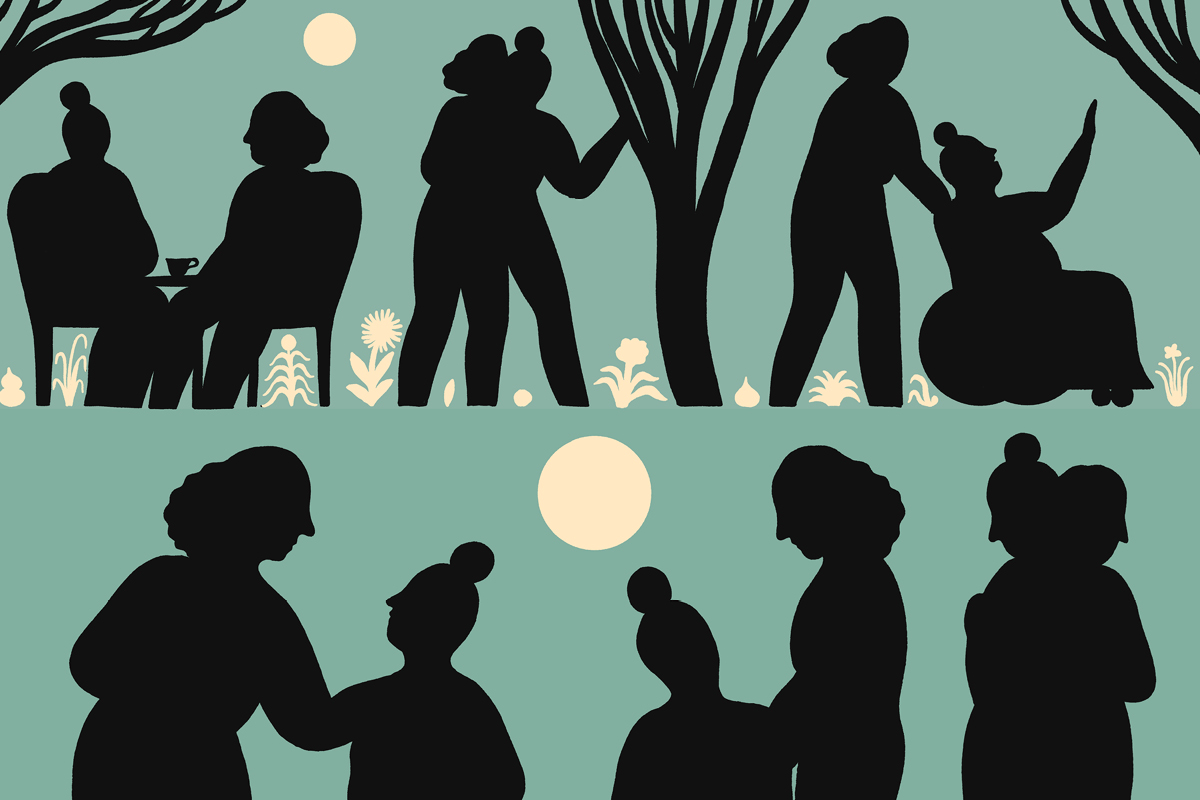“Jennifer, what you are experiencing is pre-grieving the loss of your mother.”
I wasn’t expecting these words from my spiritual adviser at Marquette’s Faber Center for Ignatian Spirituality, but they encapsulated everything I had been feeling as my mother neared 90 years old.
My spiritual adviser told me I was so afraid of losing my mom that I was participating in a form of grief I hadn’t anticipated. Digging deeper, I looked up definitions of pre-grieving — easily triggered tears and anxiety, a preoccupation that can even include rehearsing a loved one’s death — and saw myself in them.
About 10 years earlier, grief had been a major reason I had first pursued seeing a spiritual adviser. I had lost my brother to cancer while, at the same time, exploring the deeper elements of faith in my life. So, I signed up for Faber’s six-week Retreat for Busy People. Designed to work around my schedule as the director of Marquette’s Center for Teaching and Learning, that retreat started me on my journey of rediscovering my faith broadly speaking and began a healing process.
After the six-week retreat on campus, I accepted an invitation to a fall silent retreat on the grounds of a retreat center in Oconomowoc, Wisconsin. The intentional quiet, the connection with nature, the invitation to prayer: I was hooked. Through these experiences, I began to embrace more realistically the idea that death is inevitable and that it can’t stop me from engaging in all that life offers. Sitting in silence, listening to what God may have to say to me, engaging with nature and creation, all of this helped me better grieve and accept the loss of my brother, and in some ways the loss of my father many years before.
These retreats also helped me prepare for my mom’s coming frailty. They helped me give myself grace in my fear of her decline, but I couldn’t yet anticipate that I’d grieve her in advance. When that revelation came years later, I must admit I was fascinated by the new term that named how I was feeling. I learned pre-grieving can make a person more emotionally prepared for loss, which can reduce the shock of emotions when the loss happens. These discoveries were and are good for my mental health.
This awareness spurred me into action. It provided me with a chance to reflect on my relationship with my mom, share memories with her while she was alive, and take more pictures of her. I also wanted to learn more about her life. I asked her to tell me again what the early days were like. I wanted to hear more stories about her and my father and the things they shared that gave her great joy. I asked her about how she dealt with his death at the age of 60, which rendered her a widow longer than a wife. Pre-grieving also helped me begin to mitigate any regret I might experience after she was gone, resolve any lingering conflicts, and tell her every time I saw her that I loved her and how grateful I was to have drawn her from the mom pool.
Through the charism of the Jesuits, I was able to clearly see my mom and her role in my life. As I spent time with her talking about, well, everything, I began to feel less anxious and more humbled and honored by the conversation. If that isn’t the manifestation of God’s presence, I am not sure what is.
It was five years ago this past July when my mom died very unexpectedly. Gathering with my family around her bedside to let her go was the most painful experience I have ever had. Perhaps counterintuitively, however, I have been filled with a sense of peace since my spiritual awakening about anticipatory grief because it enabled me to spend the last few years with her engaged in reflection and gratitude. These two dispositions, when infused with action to invigorate life, are grounded in Jesuit traditions and beliefs that affirm these characteristics of life at its most meaningful. As I reflect further on the spiritual evolution that helps me articulate my experiences with my mom specifically and important truths about life more generally, I think back over my time here at Marquette. I am so grateful for the opportunities to explore faith in all its facets in my workplace.
As I continue to lean into anticipatory grief, I have also given it a refreshed definition of my own: Anticipatory grief occurs when a person gains an understanding of how fortunate they are to love someone in ways that make them appreciate the person all the more while the person is here with them.
Now, that I can live with.
Illustration by Julien Posture



